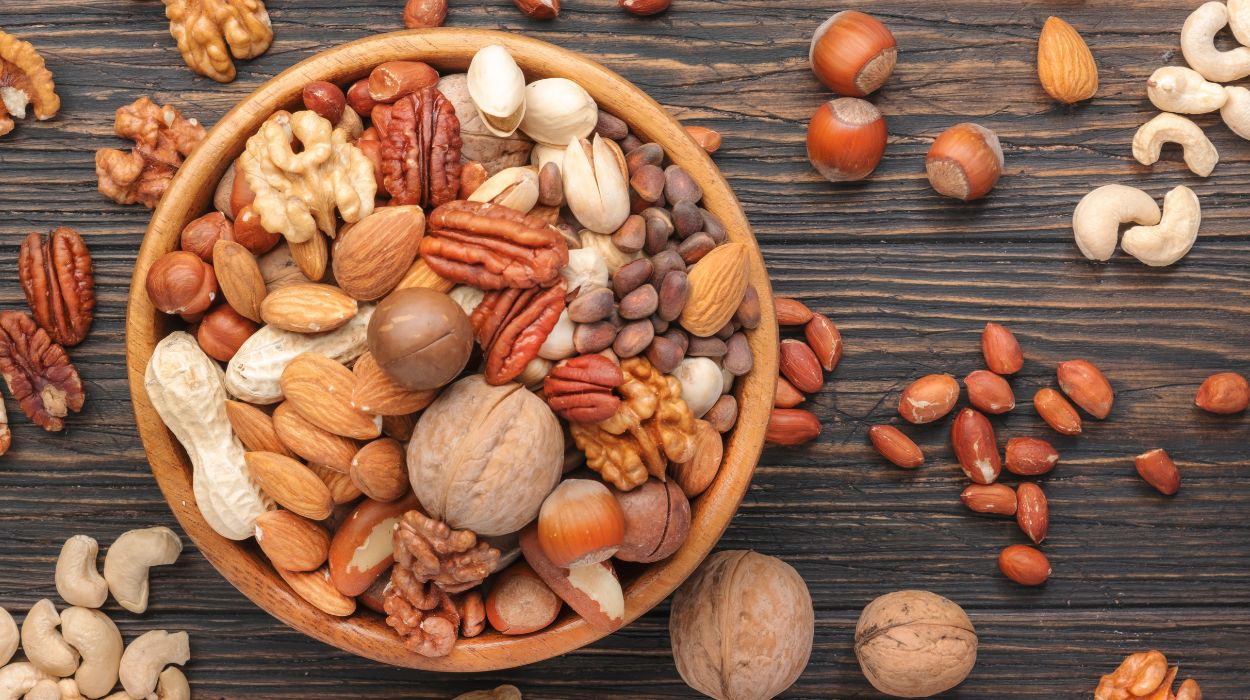Gas During Pregnancy: Causes, Symptoms & Prevention Tips 2024

Are you experiencing uncomfortable gas during your pregnancy? You’re not alone. Gas during pregnancy is a common and often unwelcome symptom many expectant mothers face. It can lead to discomfort, bloating, and even abdominal pain, making an already challenging time even more taxing. In this article, we will delve into the causes and prevention strategies for gas during pregnancy, providing you with valuable insights to help alleviate this vexing issue. Whether you’re in your early pregnancy stages or nearing the end of your journey, understanding the factors behind gas during pregnancy and learning effective prevention techniques can significantly enhance your overall well-being.
How to Get Rid of Gas During Pregnancy?
During pregnancy, experiencing gas can be quite uncomfortable. However, there are ways to alleviate this issue:
- Adjusting your eating habits to get rid of gas during pregnancy:
- Eat smaller meals and chew slowly to prevent excess air intake.
- Avoid gas-producing foods.
- Incorporate fiber-rich whole grains into your diet and stay hydrated to promote healthy digestion.
- Regular exercise can also help stimulate bowel movements and reduce gas.
- Consider trying gentle yoga poses like a child’s pose to relieve abdominal pressure.
If gas pain becomes severe or if you experience other concerning symptoms, consult your healthcare provider for appropriate advice and guidance.
Causes & Symptoms of Pregnancy Gas

Causes of Pregnancy Gas
- Hormonal changes: During pregnancy, hormonal fluctuations can affect the digestive system, leading to increased gas production.
- Slowed digestion: The rise in progesterone levels relaxes the intestinal muscles, causing food to pass more slowly and leading to gas buildup.
- Certain foods: Consuming gas-producing foods like beans, cabbage, onions, and carbonated drinks can contribute to the production of gas during pregnancy.
- Swallowing air: Pregnant women may unintentionally swallow more air while eating or drinking, leading to increased gas in the digestive system.
- Increased progesterone: The hormone progesterone, essential for maintaining pregnancy, can relax the muscles in the digestive tract, contributing to gas buildup.
Symptoms of Pregnancy Gas
- Abdominal pain: Gas trapped in the intestines can cause uncomfortable abdominal pain.
- Bloating: Excess gas can result in a feeling of fullness and bloating in the abdomen.
- Increased flatulence: Pregnant women may experience an increase in the frequency of passing gas.
- Abdominal rumbling: The movement of gas through the digestive tract can create gurgling or rumbling sounds in the abdomen.
- Belching: Excessive gas in the stomach can cause belching or burping.
- Discomfort during movement: Certain physical activities or movements may exacerbate the discomfort caused by pregnancy gas.
- Pressure on other organs: As the uterus expands during pregnancy, it can put pressure on the intestines, leading to gas-related discomfort.
Remember, while gas during pregnancy is common, if you experience severe or persistent symptoms or have concerns, it’s always advisable to consult your healthcare provider for proper evaluation and guidance.
Ways to Reduce Gas During Pregnancy 2024

Eat Smaller, Frequent Meals
Consuming smaller meals helps prevent overloading the digestive system, allowing for easier digestion and minimizing the production of gas. This is especially important because during pregnancy, digestion slows down, and larger meals can put more pressure on the digestive system and lead to increased gas production. By eating smaller portions, you reduce the strain on your digestive organs and promote more efficient digestion.
Avoid Gas-inducing Foods
Certain foods tend to produce more gas during the digestion process. To prevent excess gas, limit or avoid foods known to cause gas, such as beans, lentils, Brussels sprouts, and carbonated drinks. Additionally, individuals with lactose intolerance should be cautious with dairy products, as they can contribute to gas and bloating. Opting for alternative options or lactose-free products may be helpful.
Eat Slowly and Drink Slowly
Eating or drinking too quickly can lead to swallowing air, which can result in increased gas production. To prevent this, take your time while eating, chew food thoroughly, and sip liquids slowly. By practicing mindful eating and drinking, you reduce the amount of air ingested and minimize the potential for gas and discomfort.
Keep a Food Diary
Keeping a food diary allows you to track your dietary intake and identify specific foods that may trigger excessive gas. If you notice a pattern of increased gas after consuming certain foods, consider reducing or eliminating them from your diet. This personalized approach can help you pinpoint and avoid potential triggers, leading to reduced gas and improved digestive comfort.
Stay Hydrated
Drinking an adequate amount of water is essential for maintaining healthy digestion and preventing constipation, which can contribute to excess gas. Aim to drink water throughout the day and ensure you are properly hydrated. By staying hydrated, you support the smooth movement of food through the digestive tract, reducing the likelihood of gas buildup.
Engage in Regular Exercise
Physical activity can help stimulate bowel movements and prevent constipation, reducing the likelihood of gas. Engage in moderate exercise suitable for pregnancy, such as walking or prenatal yoga, to support healthy digestion.
Discuss with Your Healthcare Provider
If you experience severe gas, or abdominal discomfort, or have concerns about your symptoms, consult with your healthcare provider. They can provide personalized guidance and address any underlying digestive or kidney diseases that may be contributing to excessive gas.
Practice Relaxation Techniques
Stress can impact digestion and contribute to increased gas. Incorporate relaxation techniques like deep breathing exercises, prenatal yoga, or gentle stretching to reduce stress and support healthy digestion.
Try the Child’s Pose
This yoga pose can help alleviate gas and bloating. Kneel on the floor, sit back on your heels, and slowly lower your upper body forward, resting your forehead on the floor or a pillow. This gentle stretch can help release trapped gas and relieve discomfort.
Consider Over-the-counter Remedies
If symptoms persist or become bothersome, discuss over-the-counter options with your healthcare provider. They can recommend safe and suitable remedies to alleviate gas during pregnancy.
Please note that experiencing some gas during pregnancy is completely normal due to hormonal changes, the expanding uterus, and slowed digestion. However, if you have severe symptoms, excessive vomiting, or concerns about your pregnancy, seek immediate medical attention
Tips To Prevent Excess Gas During Pregnancy
Preventing excess gas can be achieved by adopting certain habits and making mindful choices. Here are some tips to help prevent excess gas:
- Eat Smaller Meals: Consuming smaller meals throughout the day helps prevent the buildup of gas. This is particularly important for individuals with digestive and kidney diseases, as excessive gas can exacerbate their symptoms
- Avoid Gas-Inducing Foods: Some foods tend to produce more gas in the digestive system. To reduce gas and bloating, avoid or minimize the intake of gas-inducing foods such as beans, lentils, Brussels sprouts, and carbonated drinks.
- Eat and Drink Slowly: Eating or drinking too quickly can cause you to swallow air, leading to increased gas. Take your time, chew food thoroughly, and sip fluids slowly to minimize air intake.
- Keep a Food Diary: Maintaining a food diary can help you identify specific foods that trigger excessive gas. If certain foods consistently cause discomfort, consider avoiding or reducing their consumption.
- Stay Hydrated: Drinking plenty of water can support digestion and prevent constipation, which can contribute to gas. Aim to drink water throughout the day and stay adequately hydrated.
By implementing these tips, individuals can take proactive steps to prevent excess gas and promote healthier digestion. However, if gas-related symptoms persist or worsen despite these strategies, it is recommended to consult with a healthcare provider for further evaluation and guidance.
Some Positions to Relieve Gas While Pregnant

Finding relief from gas during pregnancy can be achieved by adopting certain positions that help release trapped gas and ease discomfort. Here are some positions to relieve gas while pregnant:
- Standing or walking: Engaging in light physical activity, such as standing or walking, can help stimulate digestion and encourage the release of trapped gas.
- Gentle stretches: Perform gentle stretching exercises that focus on the abdominal area, such as raising your arms overhead and bending from side to side. These movements can help relieve gas by promoting movement in the digestive tract.
- Child’s pose: Kneel on the floor, then lower your body forward, allowing your forehead to rest on the floor or a cushion. This position gently compresses the abdomen, aiding in the release of gas and providing relief.
- Pelvic tilts: While on your hands and knees, gently tilt your pelvis forward and backward. This movement can help alleviate gas discomfort by encouraging movement in the digestive system.
- Side-lying position: Lie on your left side with your knees bent. This position can help relieve gas by promoting the natural movement of gas through the digestive tract.
- Sitting on an exercise ball: Sitting on an exercise ball can help relieve gas by providing gentle pressure and movement to the abdomen. Gently bouncing on the ball can also encourage the release of trapped gas.
Abdominal Pain: Gas Pain or Something Else?
Experiencing abdominal pain can be unsettling, and it’s important to determine whether it’s due to gas pain or another underlying cause. Here are some factors to consider when differentiating between gas pain and other potential causes of abdominal pain:
- Location of the pain: Gas pain is typically felt in the lower abdomen, while other conditions may cause pain in different areas of the abdomen.
- The character of the pain: Gas pain is often described as sharp, cramp-like, or stabbing, and it may come and go. Other conditions may cause different types of pain, such as a dull ache, constant pain, or a burning sensation.
- Associated symptoms: Gas pain is commonly accompanied by bloating, excessive gas, and a sense of fullness. Suppose you experience additional symptoms like vomiting, fever, diarrhea, constipation, blood in the stool, or severe pain that worsens over time. In that case, it may indicate an underlying condition that requires medical attention.
- Triggers: Gas pain can be triggered or worsened by eating certain foods, swallowing air, or changes in activity or position. If you notice a specific trigger for your gas pain, it may suggest a gas-related cause.
- Duration of the pain: Gas pain often subsides relatively quickly, whereas other conditions may cause persistent or recurrent pain.
While gas pain is a common cause of abdominal discomfort, it’s essential to consult with your healthcare provider if you’re uncertain or have concerns. They can perform a thorough evaluation, consider your medical history, and order any necessary tests to identify the cause of your abdominal pain, including gas pain or other potential conditions, and provide appropriate treatment.
When to See a Doctor
Knowing when to see a doctor for gas pain or abdominal discomfort during pregnancy. While gas and mild abdominal discomfort are often normal occurrences, there are certain situations when it’s crucial to seek medical attention:
- Severe or persistent gas pain: If you experience severe or persistent gas pain that does not improve or worsens over time, it’s important to consult a doctor for a thorough evaluation.
- Unexplained weight loss: If you notice significant and unexplained weight loss along with gas pain, it’s advisable to seek medical attention. Unintentional weight loss can be a sign of underlying health issues.
- Presence of other concerning symptoms: If your gas pain is accompanied by symptoms such as fever, vomiting, diarrhea, blood in the stool, difficulty breathing, or persistent nausea, it’s essential to consult with a healthcare professional promptly.
- Change in bowel habits: If you experience a sudden and unexplained change in your bowel habits, such as persistent constipation or diarrhea, it’s recommended to discuss it with your doctor.
- Pregnancy-related concerns: If you’re pregnant and experiencing gas pain or abdominal discomfort, discussing your symptoms with your healthcare provider to rule out any potential complications is important.
- Personal history or risk factors: If you have a history of gastrointestinal conditions like irritable bowel syndrome (IBS), inflammatory bowel disease (IBD), or other underlying health conditions that may increase the risk of complications, it’s advisable to consult a doctor for guidance.
Conclusion
In conclusion, gas during pregnancy is a common occurrence that can cause discomfort. While it is generally a normal part of the digestive process, excessive gas or severe gas pain may warrant medical attention. Pregnant women can find relief and enjoy a healthier pregnancy by understanding the causes, symptoms, and ways to reduce gas. It’s essential to consult with a healthcare provider for personalized advice and guidance throughout the journey of pregnancy.
Frequently Asked Questions
Gas during pregnancy can be caused by hormonal changes, slowed digestion, increased progesterone levels, and certain foods like fried foods.
In most cases, gas during pregnancy is a normal occurrence. However, seeking medical attention is essential if you experience severe pain, excessive vomiting, or other concerning symptoms.
To reduce gas, try eating smaller meals, avoiding gas-producing foods, such as certain whole grains and carbonated drinks, and adopting slower eating habits.
The gas itself is not harmful to the baby. However, excessive gas accompanied by severe symptoms may indicate an underlying issue that requires medical evaluation.
You can try gentle exercises, such as walking or stretching, drinking plenty of fluids, and avoiding swallowing air to help relieve gas pain.
It’s advisable to consult a doctor if you experience severe or persistent gas pain, unexplained weight loss, or if your gas pain is accompanied by other concerning symptoms like fever or blood in the stool.
Certain gas-producing foods like fried foods and carbonated beverages may contribute to increased gas during pregnancy.
Gas during pregnancy is a temporary symptom that typically resolves on its own. However, it can vary from person to person and throughout different stages of pregnancy.
+ 5 Sources
Health Canal avoids using tertiary references. We have strict sourcing guidelines and rely on peer-reviewed studies, academic researches from medical associations and institutions. To ensure the accuracy of articles in Health Canal, you can read more about the editorial process here
- Law R, Maltepe C, Bozzo P, Einarson A. Treatment of heartburn and acid reflux associated with nausea and vomiting during pregnancy. Canadian Family Physician. 2010;56(2):143-144. https://www.ncbi.nlm.nih.gov/pmc/articles/PMC2821234/
- Cao Y, Wang M, Yuan Y, Li C, Bai Q, Li M. Arterial blood gas and acid-base balance in patients with pregnancy-induced hypertension syndrome. Experimental and Therapeutic Medicine. 2019;17(1):349-353. doi:https://doi.org/10.3892/etm.2018.6893
- Lutterodt MC, Kähler P, Kragstrup J, Nicolaisdottir DR, Siersma V, Ertmann RK. Examining to what extent pregnancy-related physical symptoms worry women in the first trimester of pregnancy: a cross-sectional study in general practice. BJGP Open. 2019;3(4):bjgpopen19X101674. doi:https://doi.org/10.3399/bjgpopen19x101674
- LoMauro A, Aliverti A. Respiratory physiology of pregnancy. Breathe. 2015;11(4):297-301. doi:https://doi.org/10.1183/20734735.008615
- Gomes CF, Sousa M, Lourenço I, Martins D, Torres J. Gastrointestinal diseases during pregnancy: what does the gastroenterologist need to know? Annals of Gastroenterology. 2018;31(4):385-394. doi:https://doi.org/10.20524/aog.2018.0264






